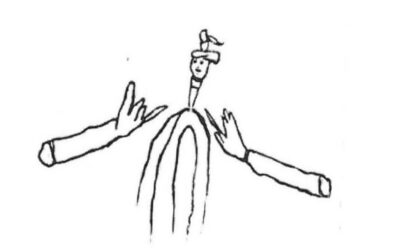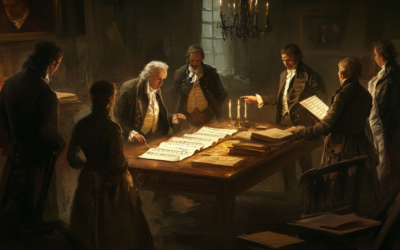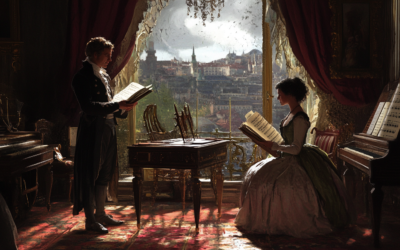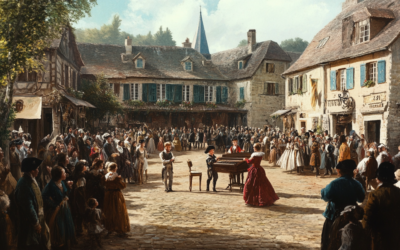Wolfgang Amadé Mozart
A Legacy Rewritten by the Shadows of History
Mozart’s image, often regarded as a universal symbol of musical genius, was heavily manipulated by the Nazi regime, a fact largely ignored in post-war efforts to “denazify” German culture. From propaganda-driven films to anti-Semitic narratives, Mozart’s legacy is far more complex and troubling than we are often led to believe.
Mozart: The Fall of the Gods
This book offers a fresh and critical look at the life of Wolfgang Amadeus Mozart, challenging the myths that have surrounded him for centuries. We strip away the romanticised image of the “natural genius” and delve into the contradictions within Mozart’s extensive biographies. Backed by nearly 2,000 meticulously sourced citations, this work invites readers to explore a deeper, more complex understanding of Mozart. Perfect for those who wish to question the traditional narrative, this biography is a must-read for serious music lovers and historians.
“Mozart, as well as Wagner, was awarded the title of honorary Nazi during the Third Reich.”
Mozart: The Fall of the Gods
In popular culture, Wolfgang Amadeus Mozart is often celebrated as a near-mythical figure, a genius whose music transcends time and borders. Yet, if we turn our gaze towards a different side of history, we find a more complex and less flattering legacy entwined with political manipulation and propaganda. Rather than the eternal “beloved of the gods,” Mozart’s image was exploited by regimes with questionable motives, most notably during the Nazi era.
After World War II, attempts were made by the Allied forces to cleanse German culture of its Nazi influences, a process known as “denazification.” Yet, despite the focus on prominent figures like Richard Wagner, Mozart’s association with the Nazi regime was largely overlooked. Throughout the Third Reich, Mozart’s music was manipulated to fit Nazi ideology, portraying him as a symbol of Aryan cultural superiority. Publications from the period were reissued, propaganda-ridden prefaces were left largely untouched, and revisions were minimal.
Heinrich Damisch, a fervent Nazi supporter and former director of the Wiener Mozart-Gemeinde, was central to this manipulation. Damisch not only contributed to anti-Semitic rhetoric but also continued to be celebrated in post-war Austria with high honours, despite his troubling legacy. His vile anti-Semitic views were ignored, and he was even honoured with the prestigious Gold Medal for services to the Austrian Republic in the late 1950s. This troubling complicity cast a long shadow on the legacy of Mozart and his association with the Salzburg Festival, a cultural institution deeply intertwined with Nazism.
Perhaps one of the most egregious examples of this tainted legacy is the film Wen die Götter lieben (Whom the Gods Love), commissioned by Joseph Goebbels in 1942. The film presented a heavily sanitised and distorted version of Mozart’s life, where figures such as Lorenzo Da Ponte, the Jewish librettist of The Marriage of Figaro, were erased, replaced by the Aryan Franz Süssmayr. This rewriting of history to fit Nazi ideology illustrates the extent to which Mozart’s image was co-opted to serve the regime’s goals.
Yet, after the war, this darker chapter of Mozart’s legacy was largely forgotten, overshadowed by the romanticised narrative of his “universal genius.” The uncomfortable truth about how his music and image were exploited was swept under the rug. Mozart remains, for many, a beacon of musical purity, while the shadows of history tell a far more disturbing tale.
In popular culture, Wolfgang Amadeus Mozart is often celebrated as a near-mythical figure, a genius whose music transcends time and borders. Yet, if we turn our gaze towards a different side of history, we find a more complex and less flattering legacy entwined with political manipulation and propaganda. Rather than the eternal “beloved of the gods,” Mozart’s image was exploited by regimes with questionable motives, most notably during the Nazi era.
After World War II, attempts were made by the Allied forces to cleanse German culture of its Nazi influences, a process known as “denazification.” Yet, despite the focus on prominent figures like Richard Wagner, Mozart’s association with the Nazi regime was largely overlooked. Throughout the Third Reich, Mozart’s music was manipulated to fit Nazi ideology, portraying him as a symbol of Aryan cultural superiority. Publications from the period were reissued, propaganda-ridden prefaces were left largely untouched, and revisions were minimal.
Heinrich Damisch, a fervent Nazi supporter and former director of the Wiener Mozart-Gemeinde, was central to this manipulation. Damisch not only contributed to anti-Semitic rhetoric but also continued to be celebrated in post-war Austria with high honours, despite his troubling legacy. His vile anti-Semitic views were ignored, and he was even honoured with the prestigious Gold Medal for services to the Austrian Republic in the late 1950s. This troubling complicity cast a long shadow on the legacy of Mozart and his association with the Salzburg Festival, a cultural institution deeply intertwined with Nazism.
Perhaps one of the most egregious examples of this tainted legacy is the film Wen die Götter lieben (Whom the Gods Love), commissioned by Joseph Goebbels in 1942. The film presented a heavily sanitised and distorted version of Mozart’s life, where figures such as Lorenzo Da Ponte, the Jewish librettist of The Marriage of Figaro, were erased, replaced by the Aryan Franz Süssmayr. This rewriting of history to fit Nazi ideology illustrates the extent to which Mozart’s image was co-opted to serve the regime’s goals.
Yet, after the war, this darker chapter of Mozart’s legacy was largely forgotten, overshadowed by the romanticised narrative of his “universal genius.” The uncomfortable truth about how his music and image were exploited was swept under the rug. Mozart remains, for many, a beacon of musical purity, while the shadows of history tell a far more disturbing tale.
You May Also Like
Unveiling the Truth Behind the Drawing
H. S. Brockmeyer’s latest research unravels the mystery behind a July 5, 1791, letter from Mozart to his wife. This remarkable investigation uncovers the original, unembellished drawing Mozart included—vastly different from the altered version widely reproduced in collections today. The discovery raises significant questions about historical accuracy and the intentional shaping of Mozart’s legacy.
The Deceptive Nature of Mozart’s Catalogue
The Thematic Catalogue traditionally credited to Mozart is fraught with inaccuracies, suggesting that many of his famous works might not be his at all. This prompts a necessary reevaluation of Mozart’s legacy and the authenticity of his compositions.
The Mozart Myth Unveiled: A Deeper Look
Mozart’s legacy is far from the untarnished narrative of genius that history would have us believe. The web of deceit woven around his name by those closest to him, including his own widow, reveals a much darker story.
The Other Side of Mozart’s Legacy
Explore the untold story of Mozart, where myth and reality collide. Our critical examination of his life and works reveals a legacy shaped by profit, myth-making, and misattribution. Join us in uncovering the truth behind the man and his music.
The Deception Surrounding Mozart’s Legacy
Anton Eberl’s confrontation with Constanze in 1798 exposed a web of deceit surrounding Mozart’s legacy, revealing that several of his compositions were falsely attributed to the late composer. This chapter uncovers the ethical dilemmas and controversies that have marred the posthumous reputation of one of history’s most celebrated musicians.
Leopold’s Invisible Hand
Behind the glittering performances of young Wolfgang and Nannerl Mozart lay the meticulous guidance of their father, Leopold. Often considered a mere teacher, Leopold’s role in composing and shaping their early musical successes has been largely overlooked. Was the child prodigy truly a genius, or was it Leopold who orchestrated his son’s rise to fame?







